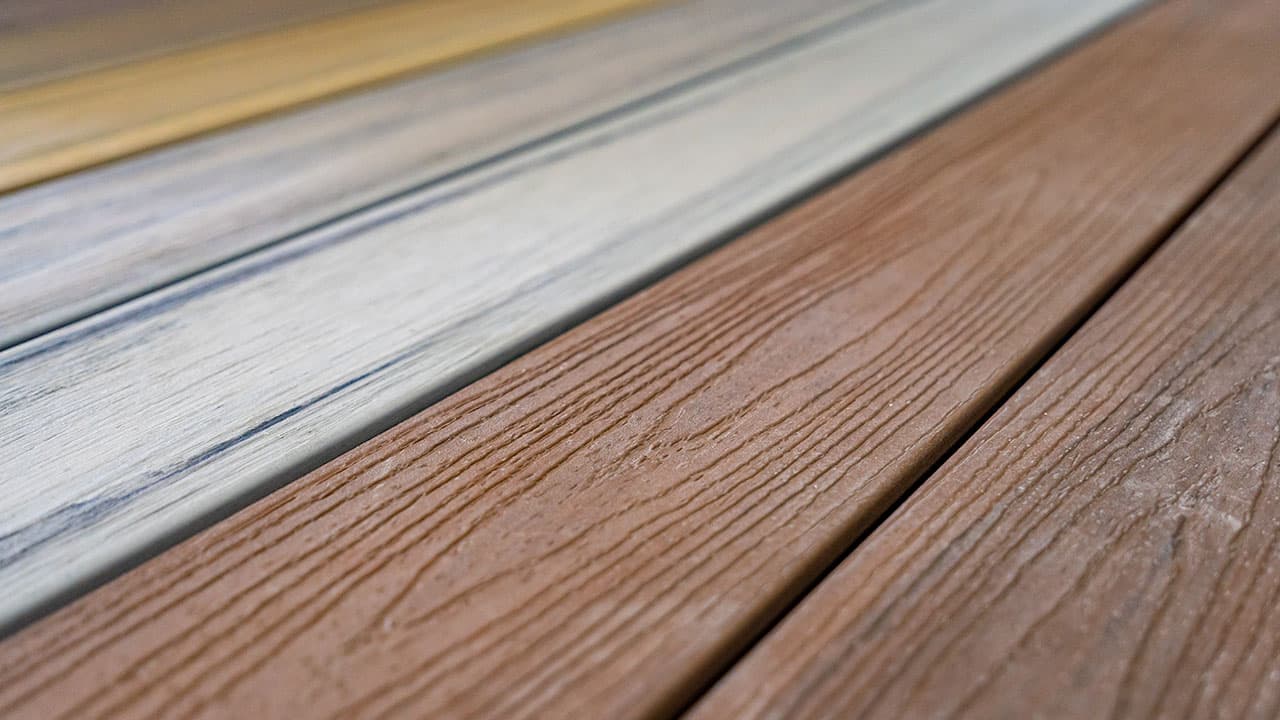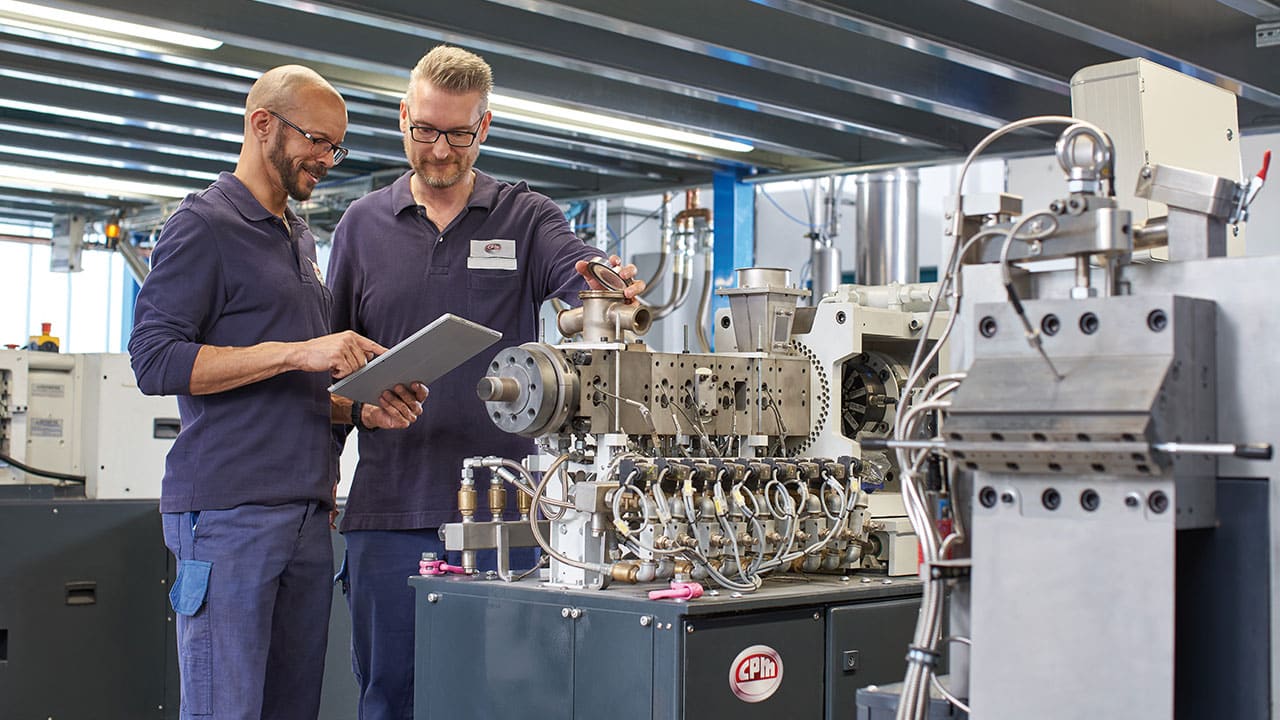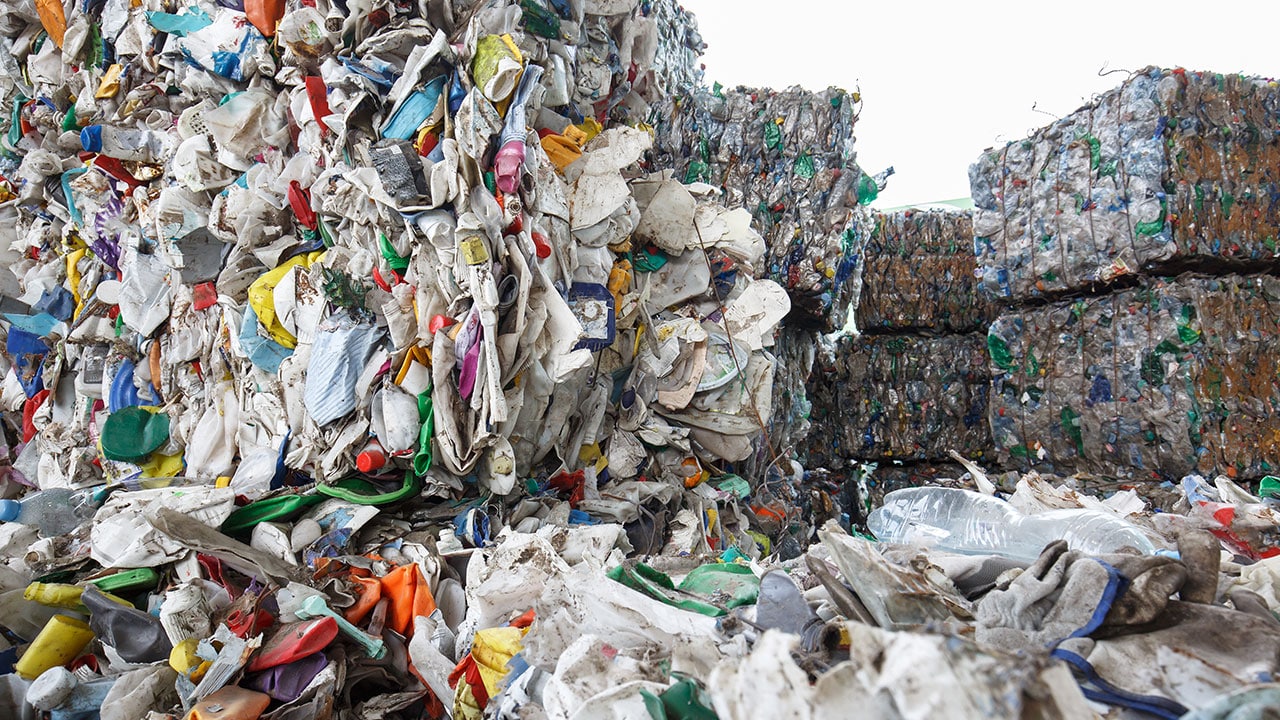Traditionally, these relaxation-forward structures are made from wood. And while a wood deck can be beautiful, they’re also notoriously difficult to maintain. Few homeowners have the patience to maintain, re-stain and restore their deck every year.
Which is why, when composite decking products were first introduced in the mid-1990s, they quickly became immensely popular.
Not only are these composite decking products long-lasting, durable and beautiful, they’re also created in a very sustainable manner, from recycled materials without cutting down a single tree.
How Composite Decking is Made
Today at Trex, North America’s largest manufacturer of composite wood decking, every composite wood board that comes out of the factory is made using CPM equipment. Trex composite decking is made from 95% recycled and reclaimed materials, primarily plastic film recycled from shopping bags and pallet wrap and reclaimed wood from shipping pallets, cabinet manufacturers and ….. that have reached their useful life.
The plastic film that Trex uses to make its decking is collected via the NexTrex program from retailers and recyclers as well as community groups and schools. After collection, the plastic film makes its way to one of Trex’s manufacturing facility in Virginia where it is shredded up into smaller pieces and then reformulated back into plastic pellets.
The shipping pallets are collected from shipping depots, retailers and other partners once they can no longer be used for shipping. They are then put through a shredding process and essentially turned into sawdust.
To create the final product, the sawdust and plastic pellets are combined through an extrusion process, and extruded out into beautiful, long-lasting architectural decking.
CPM’s Role in the Process
At this North American manufacturer of composite decking’s plants across the country, CPM’s equipment is responsible for the “turning shipping pallets into sawdust” part of the process.
This iconic decking manufacturer set up their first factory in Virginia using equipment from another hammermill provider. But, they were experiencing challenges with durability and maintenance.
Used shipping pallets are not generally a “clean” material to put into a hammermill. Even after being processed, they’re likely to still have nails, knots and contaminates in them. This means that turning shipping pallets into sawdust in a hammermill can be a pretty rough process. The hammermill needs to be tough and robust, and be easy to maintain.
The original non-CPM hammermills weren’t doing the job, so they went looking and found the CPM Bliss Eliminator line of hammermills. Eliminator hammermills are designed with two unique advantages: they’re tough, and they’re built for quick and easy maintenance.
The composite decking manufacturer trialed an Eliminator hammermill, and quickly found that it delivered on its promises. They shortly replaced all the hammermills at their Virginia factory with CPM models. In the coming years, they added CPM hammermills to their Nevada, and Arkansas factories.
Today, this single composite decking manufacturer uses over 60 CPM Bliss hammermills in its composite decking manufacturing process. The company has also grown into the world’s largest manufacturer of high-performance, low maintenance and eco-friendly wood-alternative decking.
Large Reaching Sustainability Benefits
In 2022 alone, this single composite decking manufacturer used 670-million pounds of reclaimed, recycled wood products in its manufacturing processes. That was combined with over-330-million pounds of recycled plastic film to create millions and millions of board feet of composite decking, while preserving thousands of acres from deforestation.
At CPM, we’re proud to be part of the solution to building a better, cleaner world, with products that meet the challenges our partners face. If you’re facing a unique manufacturing challenge, and looking for an innovative, experienced and dependable partner, we’d love to talk.




